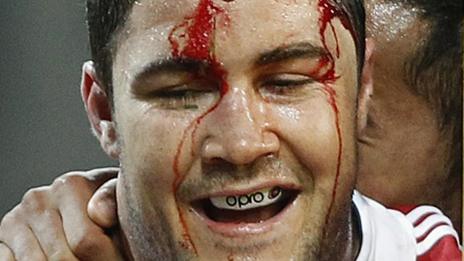Dementia fears for rugby players, academic warns
- Published
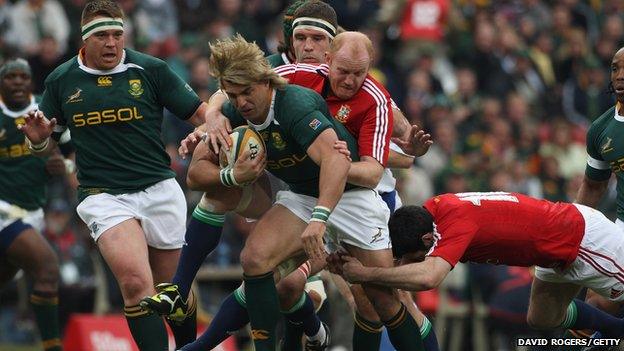
Nearly 300 current and former rugby players took part in the study
Multiple blows to the head from playing rugby may accelerate brain ageing and potentially lead to early dementia, according to a Welsh academic.
Prof Damian Bailey carried out research on 280 current and retired players.
The International Rugby Board (IRB) already accepts there could be a link between repetitive head injuries and long-term problems.
Prof Bailey's work is yet to be published but could be the first study suggesting a clearer link.
The IRB said it would not comment until the study is published while the Welsh Rugby Union (WRU), which issued guidance on concussion in September, said it plans to meet Prof Bailey to discuss his research.
Bedwyr Harries has taken a step back from rugby after a blow to the head put him in hospital

Former Wales player Martyn Williams
Williams won 100 caps playing for Wales, he said: "The minute you start thinking about how dangerous the sport is and how physical it is, I think that's the time to stop.
"Only now I'm retired, I've looked back and I think to myself, 'what were you doing for 15 to 16 years?'
"There are far more easier ways to make a living but you've got to be of a certain mind-set and, especially to reach the very top, I think its part and parcel of the game.
"I don't think you ever go out on the field 100% fit if I'm honest, in a professional career, because the game is that brutal now."

Prof Damian Bailey carried out research on 280 current and retired players
Mr Bailey, a professor of physiology and biochemistry at the University of South Wales told the BBC's Week In Week Out programme: "We've run some very well controlled scientific investigations and there are two primary findings.
"The first is that in young players repetitive concussions can have a negative impact on the way the brain functions - certainly in terms of the way it regulates blood flow to itself which we think is an important part of brain health.
"Secondly, when you then translate this to the retired player, who's retired from the international game, so these are players that have played at the very top end of the game - the negative effects we think of these repetitive concussions can conspire to impair the way players can remember and formulate ideas if you like.
"So it accelerates brain ageing and increases susceptibility potentially to onset dementia and we've got evidence to suggest that that's the case as well."
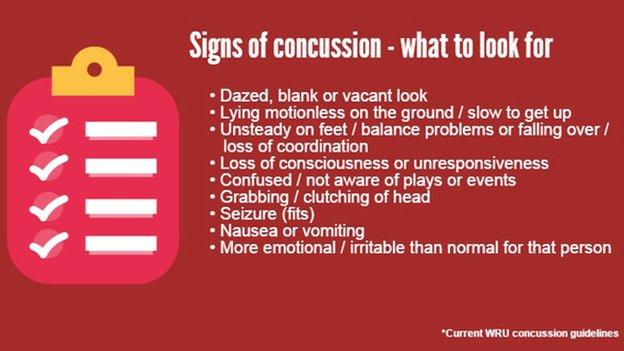
The WRU's chief medical manager Prav Mathema said rugby is not alone in having to deal with concussion and has protocols in place - which he said is not the case in all sports.
He said a lot more research is needed and is interested in any work that could help make the game safer.
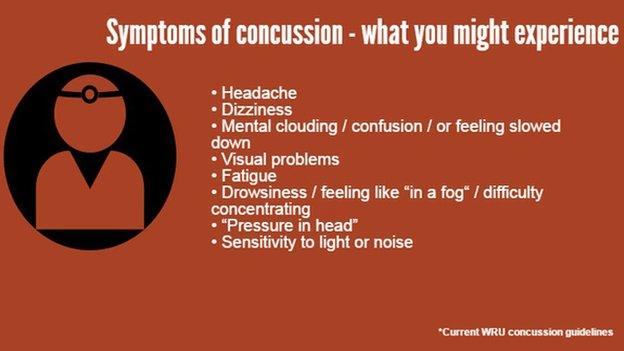
"Right now long-term health wise, we don't know enough," said Mr Mathema.
"The IRB are doing some independent research, we the WRU are engaged with the IRB with some on-going research and ourselves as well - we are delivering lots of research, not just about potential long-term health issues with concussion, but how we can prevent concussion.
"That's the key thing to me - how we can prevent it in the first place."
Week In Week Out: The Hidden Headache, Tuesday, 18 November on BBC One Wales at 22:40 GMT
- Published17 September 2014
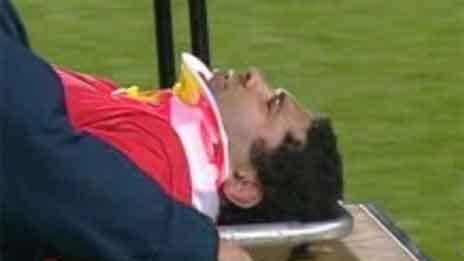
- Attribution
- Published1 June 2014
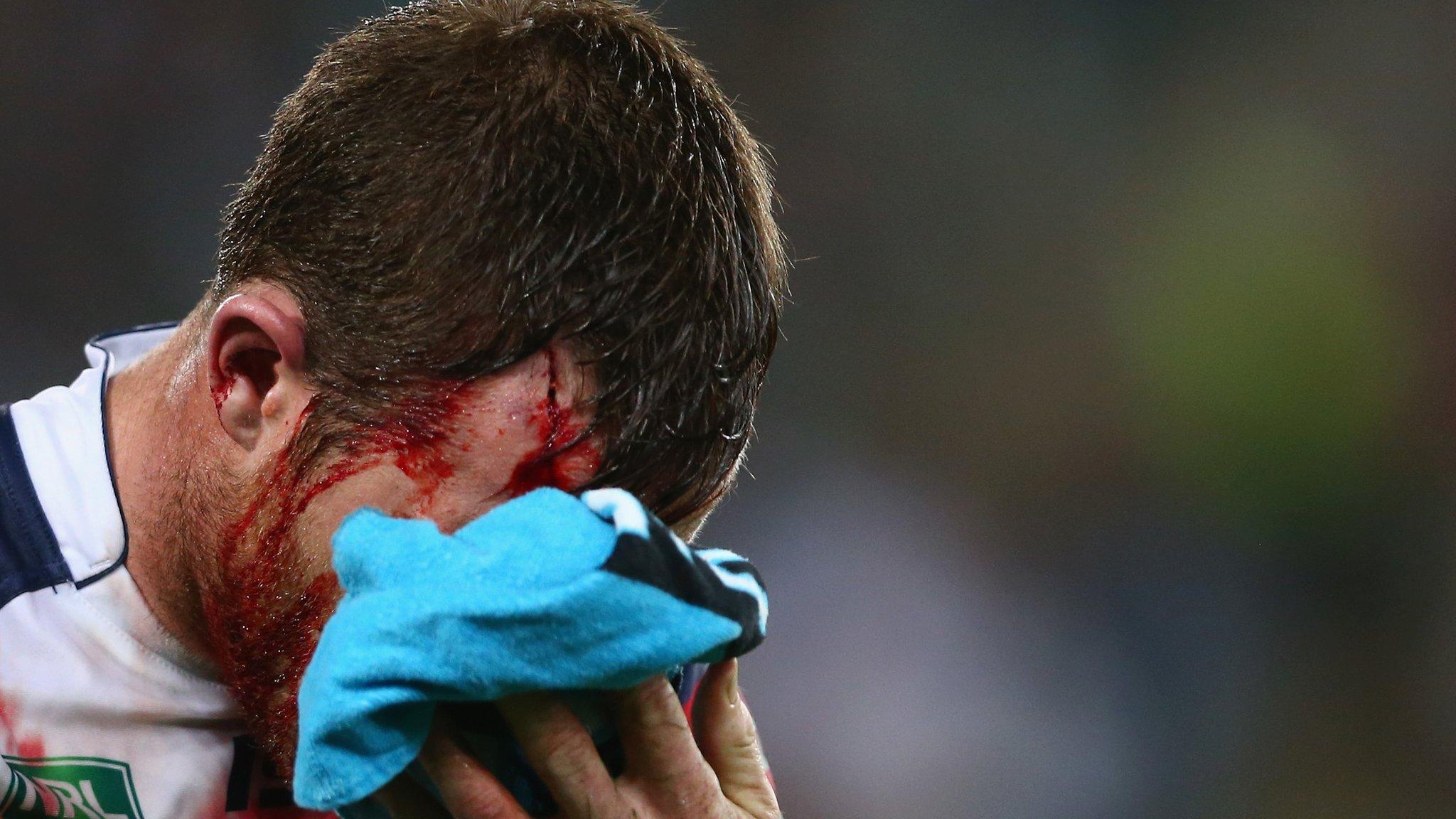
- Attribution
- Published1 November 2013
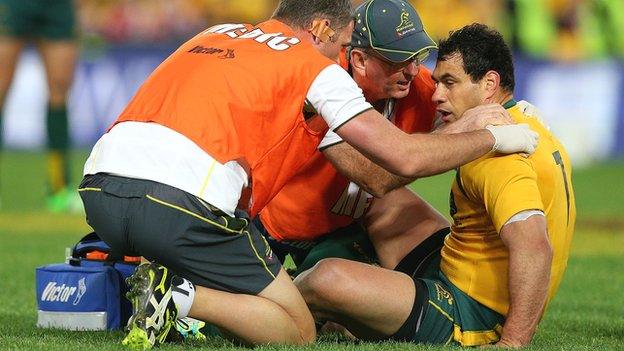
- Published17 October 2013
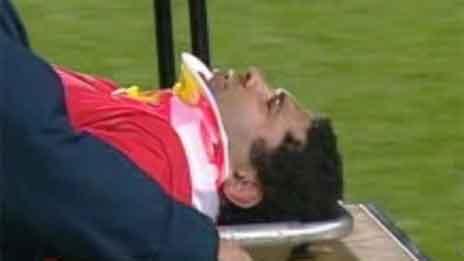
- Published3 August 2013
